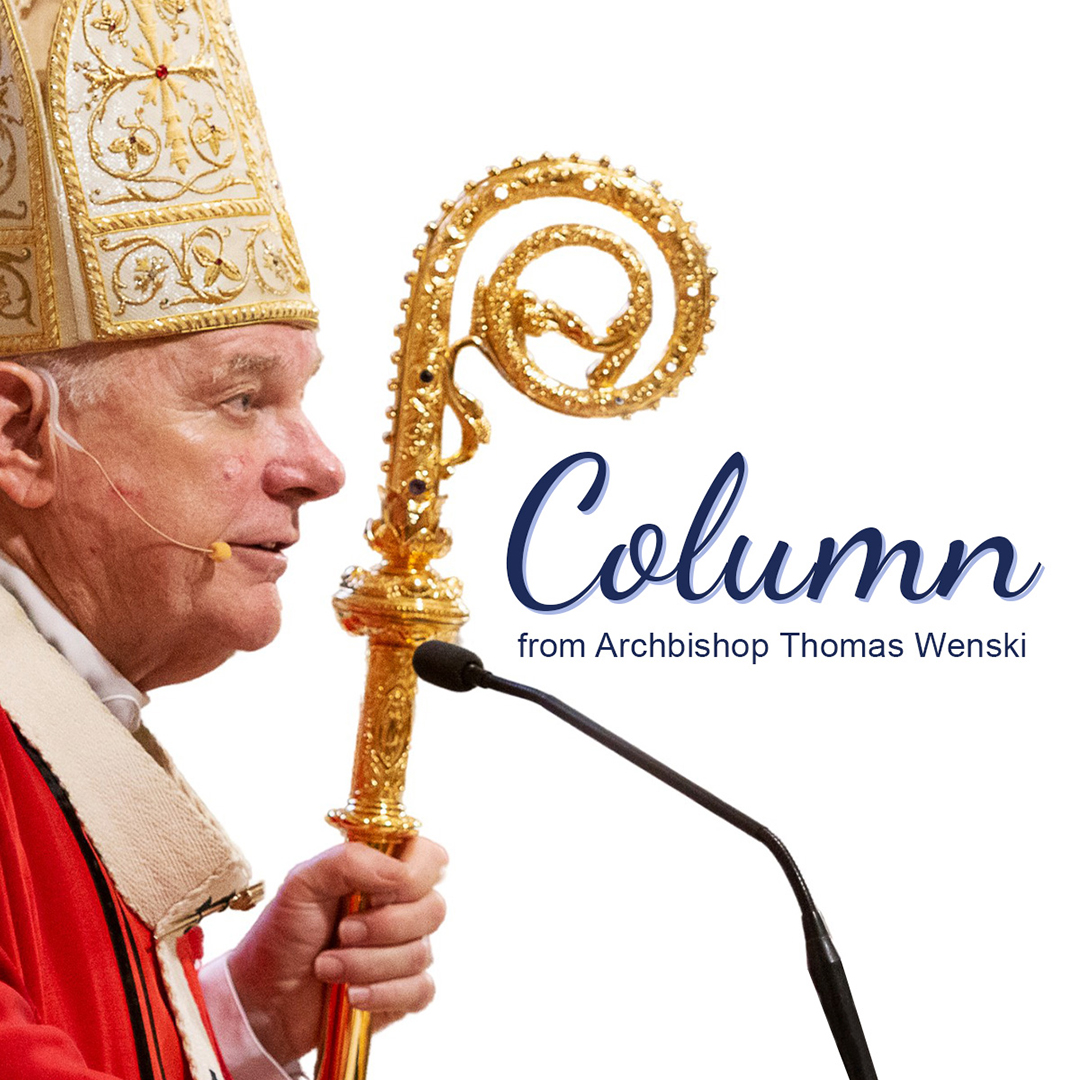By Archbishop Thomas Wenski - The Archdiocese of Miami
These days almost everybody knows about Ramadan. We might not know when it begins or ends but we know that during Ramadan, Muslims do fast and pray. And apparently, they do so quite intentionally and with appropriate seriousness of purpose. Do we Catholics approach Lent with the same intentionality and seriousness?
As members of the Church, we are a pilgrim people who, as one prayer says, go about “mourning and weeping in this vale of tears.” Our journey through life takes us along hills and valleys; that is, through high points and low points. Pilgrims, given the difficulties of the trek, should travel light, without being encumbered with excess baggage.
Lent, with its call to penance and repentance, is basically an invitation to lose the excess baggage of sin and vice. The various practices of Lent — fasting, praying, mortifications and sacrifices — are not about punishing ourselves. Rather, by freeing us of the encumbrances of sin, they are about helping us to achieve the freedom that can help us practice being our own best selves; to incline ourselves to do the right thing at the right time.
Thus, Lent is a way of checking our spiritual GPS, to make sure that with all the twists and turns of our life’s journey we are still going in the right direction. Lent reminds us that the true purpose of life is not to seek our glory but God’s glory; a glory that is found not through self-assertion or self-seeking or “being self-absorbed,” but through self-giving and self-sacrificing.
Thus, Lent — which recalls Jesus’ time in the desert — is a time of combat, a time of spiritual battle against the spirit of evil.
Lent assumes that we know the difference between right and wrong, between good and evil. So Lent is not an invitation to engage in moral arguments or debates about why something is wrong or right. Rather, it is an invitation to look at ourselves with unflinching honesty during this special time of grace and in the light of the Gospel, to try to figure out why we choose wrongly, and learn what we must do to choose rightly.
Each year during Lent we need to hear once more the voice of the prophets who cry out and trouble our conscience. For example, the prophet Isaiah challenges our idea that we can make a good Lent merely by giving up sweets or desserts. The Lord speaks through Isaiah saying: “This, rather, is the fasting that I wish: releasing those bound unjustly, untying the thongs of the yoke; setting free the oppressed, breaking every yoke; sharing your bread with the hungry, sheltering the oppressed and the homeless; clothing the naked when you see them, and not turning your back on your own.”
The Catechism of the Catholic Church speaks of the corporal and spiritual works of mercy. These works of mercy can help remind us that we are not only to avoid sin as followers of Jesus Christ; we are also to do good.
At any rate, the traditional practices of Lent - more intense prayer, sacrifices and mortifications, almsgiving and other acts of charity - are all about teaching us to say “NO” to ourselves so that, freed from the slavery of our desires, we can say “YES” to God and to our neighbor in need.

